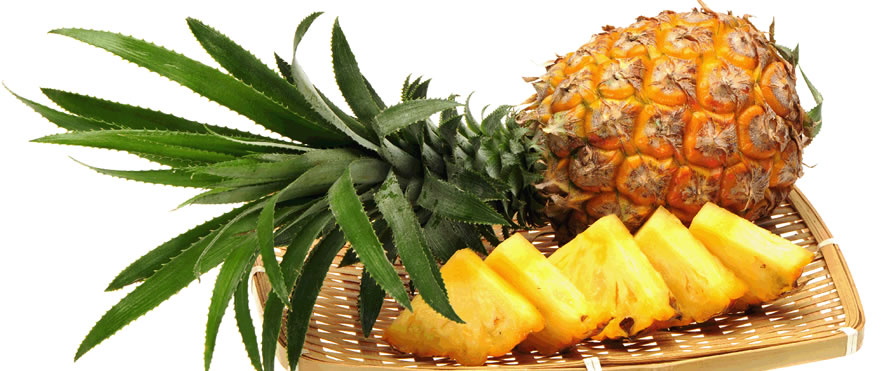
The Sunday News

 PINEAPPLE is a tropical, perennial, drought-tolerant plant that grows up to 5-8 ft in height and spreads around about three to four ft. It is essentially a short, stout stem with a rosette of waxy long, needle-tipped leaves.The plant bears several long, oval to cylindrical fruits during each season from March until June.
PINEAPPLE is a tropical, perennial, drought-tolerant plant that grows up to 5-8 ft in height and spreads around about three to four ft. It is essentially a short, stout stem with a rosette of waxy long, needle-tipped leaves.The plant bears several long, oval to cylindrical fruits during each season from March until June.
The fruit is described as compound (multiple) type of fruit that develops from many small fruits fused together around central core. Its pulp is juicy and fleshy with the stem serving as a supporting fibrous core. The outer skin features rough, tough, scaly rind. The color in the ripe fruits may change to yellow, orange-yellow or reddish.
Internally, its juicy flesh may range from creamy white to yellow colour and has a mix of sweet and tart taste with rich flavor. Each fruit measures in size up to 12 inches long and weighs 1 to 8 pounds or more.
- Fresh pineapple is low in calories. Nonetheless, it is a storehouse of several unique health promoting compounds; minerals and vitamins that are essential for optimum health.
n 100g fruit provides just about 50 calories equivalent to that of apples. Its flesh contains no saturated fats or cholesterol; however, it is a rich source of soluble and insoluble dietary fiber like pectin.
- Pineapple fruit contains a proteolytic enzyme bromelain that digests food by breaking down protein. Bromelain also has anti-inflammatory, anti-clotting and anti-cancer properties. Studies have shown that consumption of pineapple regularly helps fight against arthritis, indigestion and worm infestation.
- Fresh pineapple is an excellent source of antioxidant vitamin; vitamin C. 100g fruit contains 47,8 or 80 percent of this vitamin. Vitamin C is required for the collagen synthesis in the body. Collagen is the main structural protein in the body required for maintaining the integrity of blood vessels, skin, organs, and bones. Regular consumption of foods rich in vitamin C helps protect the body from scurvy; develop resistance against infectious agents (boosts immunity) and scavenge harmful, pro-inflammatory free radicals from the body.
- It also contains small amount Vitamin A (provides 58 IU per 100g) and beta-carotene levels. These compounds are known to have antioxidant properties. Vitamin A is also required in maintaining healthy mucus membranes, skin and essential for vision. Studies have suggested that consumption of natural fruits rich in flavonoids helps to protect the human body from lung and oral cavity cancers.
- In addition, this fruit is rich in B-complex group of vitamins like folates, thiamin, pyridoxine, riboflavin and minerals like copper, manganese and potassium. Potassium is an important component of cell and body fluids which helps in controlling the heart rate and blood pressure. Copper is a helpful cofactor for red blood cell synthesis. Manganese is a co-factor for the enzyme superoxide dismutase, which is a very powerful free radical scavenger.



